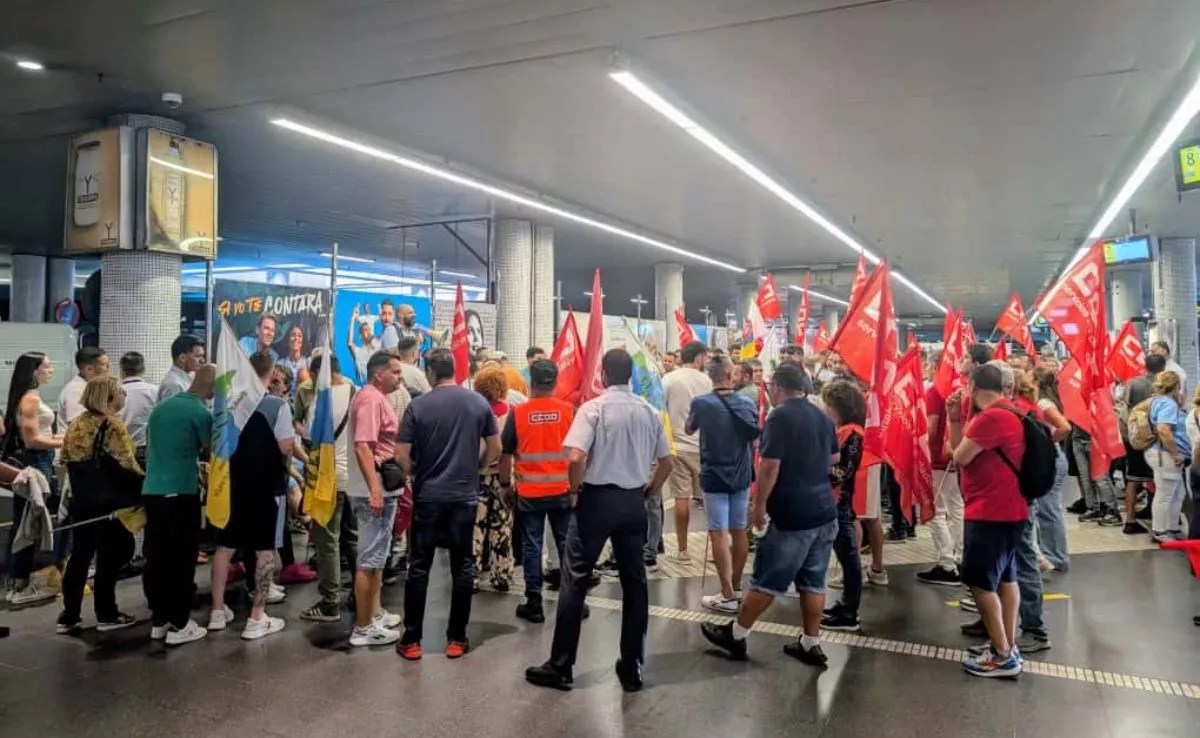Rosa Dávila has started the campaign with “great enthusiasm”, the same that she assures that she notices among the people she comes across and that they show her their affection and trust. “There is a desire for change and for her to be a woman who is in charge of the Cabildo for the first time.” In her broad electoral program, she has measures with which, in her opinion, to face the “paralysis” in which Tenerife is. Among these proposals are those aimed at the youngest and the elderly.
-What concrete proposals does CC offer to the youngest?
“The first problem we have in the Canary Islands, and specifically speaking of young people, is employment. With unacceptable unemployment rates, with 50% youth unemployment. One of the most important issues has to do with the training and qualification of young people. We have to align the demand of the labor market with the training offer of young people”.
And how do you propose to achieve it?
“It is very important to promote Vocational Training, that is why we bring a person with a very long experience in the Cabildo board, such as José Pestano, a person who has had responsibilities in terms of employment and promotion of Vocational Training. Dual Vocational Training centers must be promoted. Both in the North and in the South, in Icod and Adeje, which are within the planning of the centers in Tenerife, but none of them have been built”.
What other measures do you highlight?
“We have proposals for different areas of the Island. For example, if we go to points like Isla Baja, we find that young people cannot receive basic Vocational Training, because they do not have cycles in Buenavista, which leads them to leave the studies or the area. So, as for other parts, we propose special attention to the Isla Baja, to depopulation and, above all, to the young people who end up leaving the towns because they don’t see opportunities”.
-And how much to the University?
“We also have proposals. In this sector, I believe that we must work with the university community, to support the extension of cycles, double degrees, something that is demanded by both young people and the labor market. We can help the university, not only by betting on research, but also by supporting the faculties themselves, who see how the number of enrollments falls every year. I think it will be a very nice challenge to address these issues with the new governing team and with the young people, with whom I have sat down, and we see many things in which we could collaborate”.
-As which?
“One that I consider essential is mobility to training centers. Young people need to move in a more sustainable way and we have to facilitate that mobility, in the South and in the North, by providing shuttle buses. We already got free, but one of the most important tools for taking public transport is that it has coverage and capillarity, that you don’t have to make transfers. It is essential that there are direct buses to the University. Someone who lives in La Guancha has to make four transfers. We are going to make things easier for them.”
-You have also spoken about the importance of mental health among the youngest…
“That is a most worrying issue, I would tell you that it is as much as employment. That is why a person who is extraordinary comes with me in the candidacy, Pedro Rodríguez, psychiatrist, pediatrician and vice president of the College of Physicians. He is a benchmark in child and adolescent mental health, with whom we want to address an insular strategy for mental health among young people. At this time, suicide among the child and adolescent population is the first cause of death, self-harm, depression… The mental health of young people must be at the center of attention of society and institutions. We have to be able to work with the third sector, have more professionals, and be aware that there is a pandemic, a serious problem with young people in terms of mental health”.
How would you approach that strategy?
“Working side by side with the town halls, with health professionals. Town halls can go a long way. An example is Juan Acosta, mayor of Santa Úrsula, a doctor, and who also has a clear vision of how to promote a healthy life by working with the youngest, with sports, with activities, creating community. And linking to this, I advance that, if I am president, from the Cabildo we will recover the TLP, an event that, after 16 editions, the Cabildo has finished with it, a tremendous error by the PSOE ”.
-And for the older ones, what are your proposals?
“The first thing I will do if I am president will be to recover Ansina, a project that was much more important than the PSOE believes. It has been a mistake, and not just a political one, because the damage that has been done to the elderly is irreparable. Many were left at home, alone, without activities and died without being able to recover those activities, and that is something that can no longer be repaired”.
-And besides Ansina?
“The other very important part has to do with the provision of residences for the elderly and also for people with disabilities. There are not enough residences. There was a socio-sanitary plan for the Canary Islands, with a budget, and with projects that have been paralyzed in Tenerife, not on other islands. The best example is the residence built in Guía de Isora, with 100 beds, and which was delivered to the Cabildo in 2019. All you had to do was buy the furniture and put it into operation. Four years later, not only has it not been done, but it is vandalized. To unblock this plan, we must join the collaboration with the town halls to work on active old age”.















